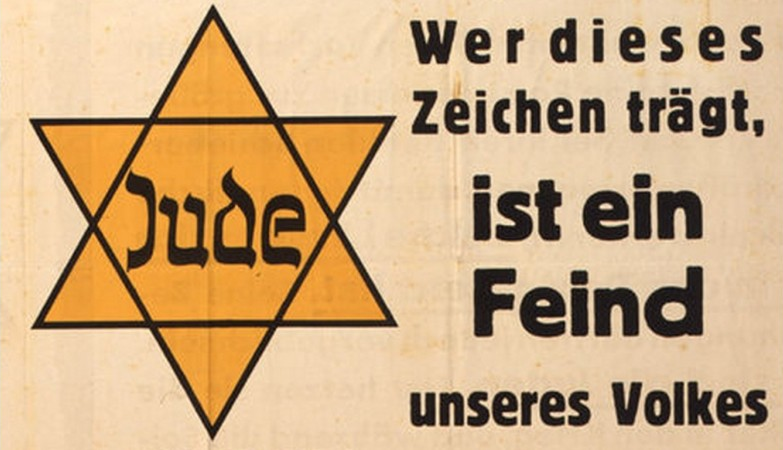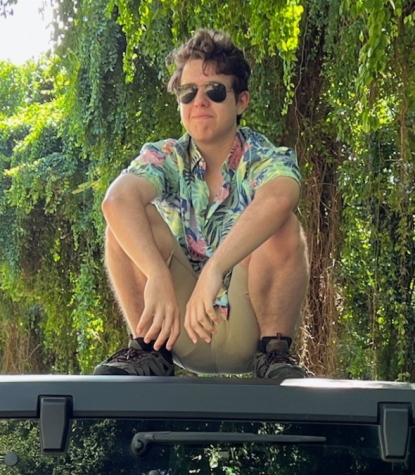For the first time in recent memory, Mesa College commemorated the systematic murder of six million Jewish people, in observance of Holocaust Remembrance Day, or Yom HaShoah, on April 18.
Every spring, on the 27th day of the Hebrew calendar month of Nisan, Jewish people around the world mark Yom HaShoah, which commemorates the systematic and industrialized slaughter of religious and ethnic minorities under the regime of Nazi Germany before and during World War II.
Mesa President Dr. Ashanti Hands discussed the importance of remembering the past, and how Yom HaShoah can be educational even for those who are not Jewish. She was followed by Laurie Coskey, Vice Chancellor of Development and Entrepreneurship at Mesa, who read a poem about her own family’s experience during the Holocaust.
As Coskey, who is also an ordained rabbi, talked about her murdered relatives, she became teary-eyed more than once, but the poem was also full of joy. It celebrated the little things in life, the ones that would be so ruthlessly taken away by the Nazis, and her account was equal parts laughter and grief.
Next up was Sandra Scheller, a San Diego native born to Holocaust survivors. She has dedicated her life to educating people about the atrocities of the Nazi regime. In particular, Scheller focused on showing the audience how the people persecuted by the Nazis were, by and large, completely innocent — the victims of a megalomaniac who viewed them simply as easy scapegoats with which to manipulate his nation. To that end, the “RUTH Remember Us The Holocaust” exhibit, which she created in memory of her mother, seeks to highlight the survivors and their stories.
The exhibit was located at the Chula Vista Heritage Museum between 2020 and 2022, and is now online. In displaying it to the audience, Scheller said, “You cannot keep speaking to the same people over and over again” when it comes to Holocaust remembrance. It is not enough for only a few to remember.
Though the audience was small and the room was large – a combination which can easily lend itself to awkwardness – Scheller brought with her a natural and powerful stage presence. She simultaneously talked about the tight-knit community environment where her family grew up, and the horrific crimes which were committed against them once that community was torn apart. She explained that, though none of the people in the room had witnessed any of these crimes, trauma doesn’t end once the traumatic events end; generational trauma is real. That is, after all, the meaning of trauma: something that severely impacts a person for a long time after the initial shock.
The final speaker was Robert Hicks, Assistant Regional Director for the San Diego branch of the Anti-Defamation League, which was formed in 1913 to “Stop the defamation of Jewish people and to secure justice and fair treatment to all.”
After laying out the organization’s mission, Hicks went on to explain what being Jewish means. More specifically, he explained that Jews are not a racial group, as Jewish people come from all races. Nor is it, as many Americans believe, just a religion. Rather, Jews are what’s known as an “ethnoreligious” group, where some members are ethnically Jewish but not religiously, some are religiously Jewish but not ethnically, and some are both. Hicks himself belongs to the first category.
After laying these foundations, Hicks reached the main point of his presentation: the re-emergence of anti-Semitism in the modern day and how it can be fought. Since 2016, anti-Semitic incidents have rapidly increased in number, and anti-Semitic attitudes have grown more prevalent among the American populace. He explained that genocides like the Holocaust always begin with negative biases against minority groups, which can then be weaponized for political purposes.
Hicks highlighted the unique nature of anti-Semitism, as opposed to most other forms of discrimination. Whereas prejudicial views about black people, women, Muslims, and LGBTQ people all punch down – that is to say, they stress the supposed inferiority of these groups – anti-Semitism claims to punch up. For centuries, if not millennia, anti-Semitic propaganda has always painted Jewish people as the ones who control important institutions like banks and newspapers, and advocates of these views will claim to simply want a level playing field.
In effect, they try to paint themselves as the victims. Towards the end of the speech, Hicks listed some strategies that people can use to fight anti-Semitic attitudes. For example, if someone says that Jewish people are prone to greed, one can try to broaden this generalization to all people — greed isn’t a Jewish trait, it’s a human trait.
In the end, though it was small and humble, the commemoration of Yom HaShoah at Mesa is but one of many steps in the right direction that need to be taken to reverse the rise of anti-Semitism in America.


